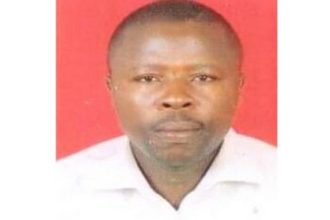The rights of accused persons must be clearly highlighted so that both the accused and the general public are aware of these protections. It is important to explain what amounts to a crime, including possible legal defenses to criminal liability.
Ugandan municipal law and public opinion regarding the status of accused persons in criminal trials must receive sufficient attention. I have observed and followed various discussions where individuals appearing before court are already labeled by the public as thieves, corrupt officials, defilers, or murderers—even before a verdict has been reached.
Such labeling is contrary to the guidance and guarantees provided by the Constitution of Uganda. The Constitution, which is the supreme law of the land, clearly states that all accused persons in a criminal trial are presumed innocent until proven guilty. This fundamental principle is enshrined under Article 28(3)(a).
The reasoning behind this constitutional provision is to protect accused persons from unfair labeling and name-calling. It is a long-held legal principle that the burden of proof rests on the party that alleges, meaning it is the duty of the prosecution—not the accused—to prove the charges beyond reasonable doubt. Even the state is not exempt from this burden; it must present sufficient evidence to prove its case.
This protection is not only provided under Ugandan law but is also recognized in international law. Articles 66(1), (2), and (3) of the Rome Statute of the International Criminal Court (ICC) emphasize that the burden of proof lies with the prosecution and never with the accused. These statutory positions have been further reinforced by judicial decisions and form strong precedents that must be respected by any competent judicial officer.
Furthermore, the decision to grant bail to accused persons is based on constitutional guarantees. Bail is granted in fulfillment of Article 23(6) of the Constitution, which protects the rights of individuals awaiting trial.
As we approach the 2026 electoral cycle, I appeal to voters across Uganda—including in Bugisu—to respect these constitutional provisions. People with pending criminal cases should not be automatically regarded as criminals or be unfairly judged by the public. Until a court of law declares otherwise, these individuals remain innocent.
This legal presumption means that such persons are free to participate in public activities, including elections, marriage, movement, and full enjoyment of civil liberties. They are entitled to the same rights as any other citizen unless and until proven guilty in a court of law.
Criminal law contains specific presumptions and safeguards that cannot be ignored. For instance, it is widely accepted in legal circles that it is better to release ninety-nine guilty persons than to wrongfully convict one innocent individual. This principle highlights the sacred nature of the presumption of innocence.
When a crime is committed, the focus should shift to identifying the true perpetrator. Even the accused may completely deny involvement, and it remains the duty of the state to provide credible evidence placing them at the scene of the crime.
Under the Evidence Act, specifically Sections 101, 105, and 106, the burden of proof lies with the prosecution. The accused is not required to prove their innocence and may remain silent throughout the proceedings.
Additionally, accused persons have the right to raise legal defenses to avoid liability. These defenses can be statutory, judicial, or procedural in nature. Statutory defenses may offer complete exoneration, while procedural defenses can be challenged on technical grounds.
Common defenses in criminal law include:
-
Ignorance of the law
-
Claim of right
-
Accident
-
Mistake of fact
-
Insanity
-
Intoxication
-
Judicial immunity
-
Defense of property
-
Innocence
These are all recognized under Ugandan law and must be understood by both the courts and the public.
The writer is a law researcher based in Mbale.
Tel: 0782231577




















